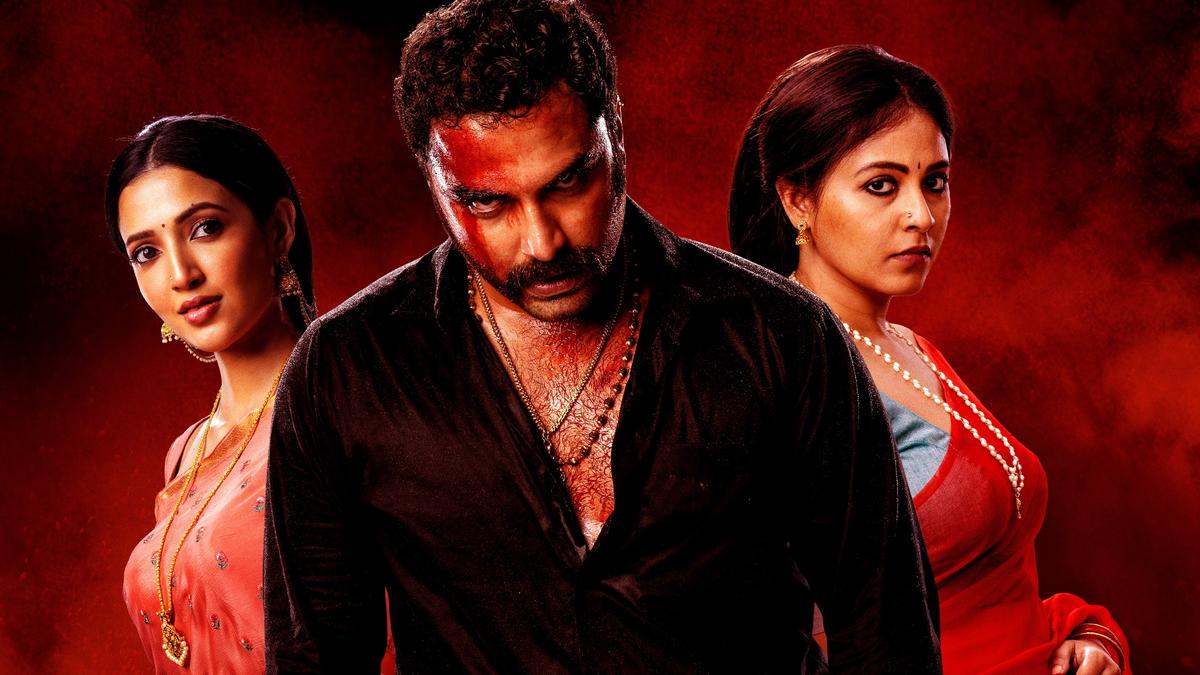
‘Gangs of Godavari’ movie review: A spirited Vishwak Sen shoulders an ambitious gangster drama
The Hindu
Gangs of Godavari movie review: Vishwak Sen’s Telugu gangster drama explores morality, power, and complex characters in a gritty narrative.
A few minutes into Gangs of Godavari, the Telugu gangster drama written and directed by Krishna Chaitanya, the protagonist Ratna (Vishwak Sen) states that he does not know if he is good or bad, and does not want to give a false impression of being a good man. As the film progresses, it is evident that it is not a throwaway statement. The story revolves around his character who is dark, messy and on the wrong side of the moral compass. The film takes a massy tone and ends up celebrating some of the antics of the protagonist but also shows him the mirror. Gangs of Godavari is ambitious and tips its hat to films such as Nayakan, Vada Chennai and Gangs of Wasseypur. Though its writing and execution do not always match up to the ambition, there is enough to explore and engage with. Also, this gangster drama does not treat its women as pushovers.
The narrative quickly establishes the milieu and its people with all their complexities. In a village on the banks of the mighty Godavari, we are introduced to a purported practice of ‘kaththi kattadam’ or people placing a trident to avenge a character. The belief is that no one who has had a trident in his or her name has been able to escape death. The one who has evaded this, so far, is Ratna, but the odds are piling up against him.
Moving back to a period when ballot boxes were in use and there were no smartphones, the film narrates the journey of Ratna, a shrewd opportunist who swiftly rises from being a small-time trader to having his say in sand mining and politics. The sun-kissed warm tones of Anith Madadi’s cinematography accentuate the brooding narrative.
His story unravels with a generous mix of humour as he crosses paths with arch rivals Doraswami Raju (Goparaju Ramana) and Nanaji (Nasser). Integral to Ratna’s story are the parts played by sex worker Ratnamala (Anjali) and Bujji (Neha Shetty), whose lineage, when revealed, doesn’t come as a surprise.
The first hour proceeds briskly, never relenting in exploring facets of the gangster drama and the common people who mostly appear gullible. Ratna takes everyone and everything in his sweep, and his rise sometimes plays out like a satire on politics and people. Watch out for a kidnap and ransom episode laced with fun moments.
At one point, Ratna gives himself the title Tiger and implies that what might sound odd initially will be accepted by people if repeated many times. Such small things work as sharp observations of society. There is a lot to unpack and soak in and it looks like the film is on safe turf.
In the later portions, however, as we know more about the ‘monster’ that Ratnakar is, the narrative wobbles. As expected, he has a backstory. Thankfully it does not overtly justify his actions; he is still made accountable. Vishwak Sen sheds his urban demeanour and portrays Ratna’s swag, rage and vulnerability with conviction. This is one of his noteworthy performances, especially when the chinks in his armour are exposed and he realises his vulnerability and comes face to face with fear. What would have worked further in these portions is the presence of a stronger antagonist.

“Writing, in general, is a very solitary process,” says Yauvanika Chopra, Associate Director at The New India Foundation (NIF), which, earlier this year, announced the 12th edition of its NIF Book Fellowships for research and scholarship about Indian history after Independence. While authors, in general, are built for it, it can still get very lonely, says Chopra, pointing out that the fellowship’s community support is as valuable as the monetary benefits it offers. “There is a solid community of NIF fellows, trustees, language experts, jury members, all of whom are incredibly competent,” she says. “They really help make authors feel supported from manuscript to publication, so you never feel like you’re struggling through isolation.”

Several principals of government and private schools in Delhi on Tuesday said the Directorate of Education (DoE) circular from a day earlier, directing schools to conduct classes in ‘hybrid’ mode, had caused confusion regarding day-to-day operations as they did not know how many students would return to school from Wednesday and how would teachers instruct in two modes — online and in person — at once. The DoE circular on Monday had also stated that the option to “exercise online mode of education, wherever available, shall vest with the students and their guardians”. Several schoolteachers also expressed confusion regarding the DoE order. A government schoolteacher said he was unsure of how to cope with the resumption of physical classes, given that the order directing government offices to ensure that 50% of the employees work from home is still in place. On Monday, the Commission for Air Quality Management in the National Capital Region and Adjoining Areas (CAQM) had, on the orders of the Supreme Court, directed schools in Delhi-NCR to shift classes to the hybrid mode, following which the DoE had issued the circular. The court had urged the Centre’s pollution watchdog to consider restarting physical classes due to many students missing out on the mid-day meals and lacking the necessary means to attend classes online. The CAQM had, on November 20, asked schools in Delhi-NCR to shift to the online mode of teaching.









